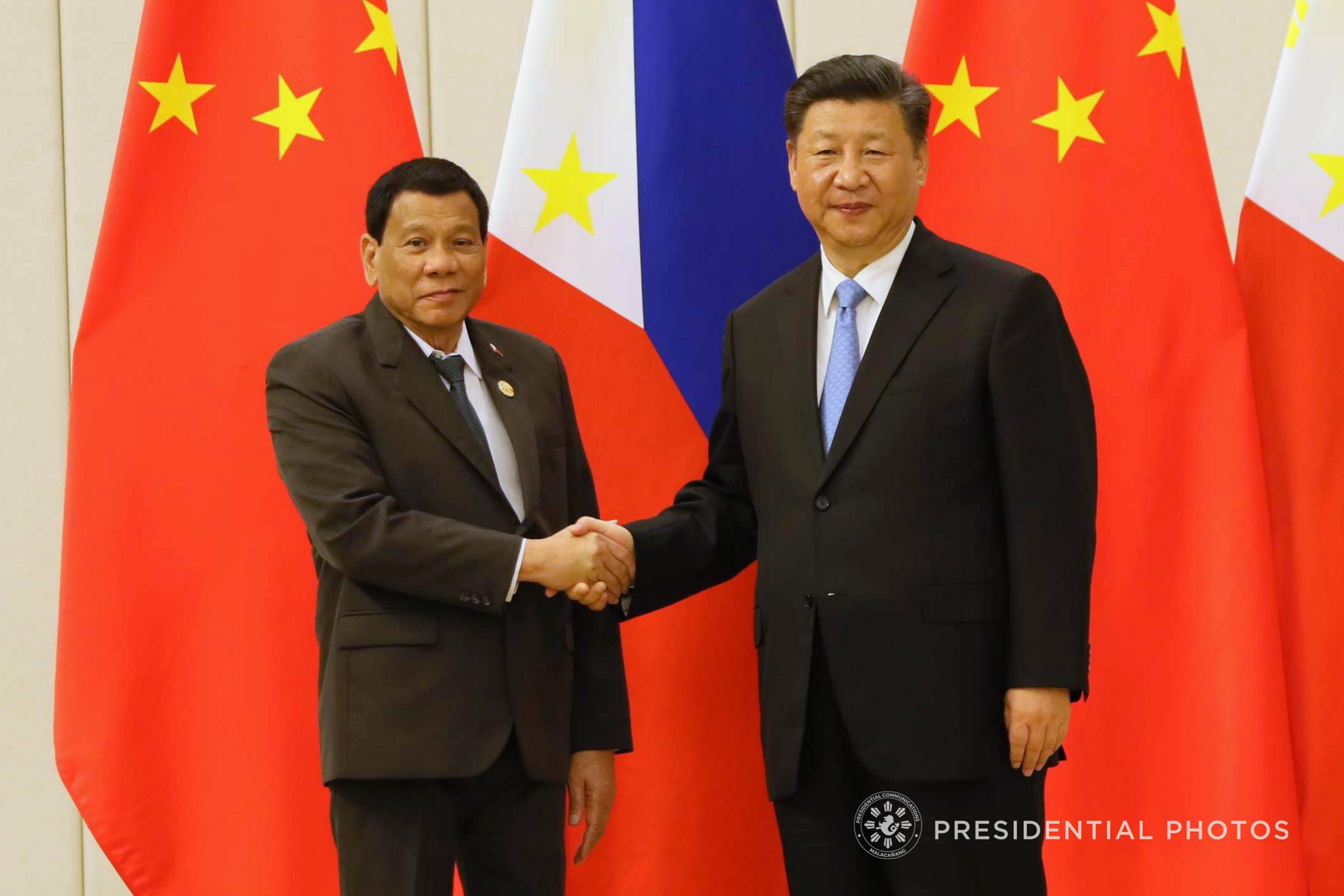Headline
SWS: 4 out of 5 Pinoys see lack of gov’t action over China moves in West PH Sea

FILE: It was also at “bad” levels despite public’s satisfaction with President Rodrigo Duterte. (ACE MORANDANTE/PRESIDENTIAL PHOTO)
A latest Social Weather Stations (SWS) survey revealed that four out of five Filipino adults think that the government must take more action against China’s militarization on the West Philippine Sea (WPS).
In its June 2018 survey released on Saturday, July 14, 81 percent of survey respondents said it is “not right” for the Philippine government to “leave China alone with its infrastructures and military presence in the claimed territories.”
Likewise, 80 percent of Filipinos believe that the government should strengthen the country’s military capability, particularly the Philippine Navy (PN).
Seventy-four percent of them, meanwhile, think that it is right for the government to discuss the issue with international organizations such as the United Nations (UN) or Association of Southeast Asian Nations (ASEAN) for a “diplomatic and peaceful” negotiation with Beijing regarding the claimed territories.
While 73 percent of the respondents said it is okay for the Philippines to “have direct, bilateral negotiations” with China to tackle the resolution of the issue of the claimed territories, and 68 percent still believe that the government should just ask other countries “to mediate the issue.”
Awareness level
The SWS also found out that 81 percent of Filipinos are aware of the WPS conflict even before the interview was conducted, with 12 percent of them having “extensive” knowledge, 40 percent having “adequate” knowledge, 43 percent having “only a little” knowledge, and five percent having “very little” knowledge about the issue.
“The remaining 19% learned about the issue only during the interview,” the pollster said.
Net trust in Beijing
Meanwhile, the recent survey also revealed that China’s net trust rating went down to a “bad” -35.
It found 18 percent of the survey respondents with “much trust”, 27 percent “undecided,” and 53 percent with “little trust” in China.
“This is a 42-point decline, and two grades down, from the neutral +7 in March 2018. This is the lowest since the bad -37 in April 2016,” the SWS said.
China’s net trust rating also got a “bad” -38 among those who were aware of the issue, compared to the “poor” -22 among those who just learned about the conflict during the interview.
It was also at “bad” levels despite public’s satisfaction with President Rodrigo Duterte.
“It was highest among those who were dissatisfied with the President, at -42, followed by those who were undecided, at -39, and among those who were satisfied with him, at -32,” the pollster noted.
The latest SWS survey, conducted from June 27 to 30, 2018, used face-to-face interviews of 1,200 adults (18 years old and above) nationwide; 300 each in Metro Manila, Balance Luzon, Visayas, and Mindanao.























